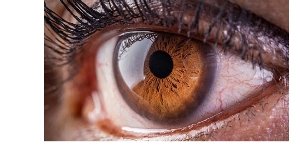Eye health and for that matter sight tends to be neglected globally especially in developing countries, Health policy makers pay less attention to eye care and its associated challenges so as the society as a whole.
In Ghana, the National Health Insurance Scheme (NHIS) has made a policy that members on the scheme can access free medical check-up on their birthdays but no provision has been made on eye health which is a speciality on its own and needs a holistic attention and approach in its policies.
As the saying in Matthew 6:22 KJV put: ‘’the eye is the lamp of the body; if your eye is healthy, your whole body will be full of light’’, society can't afford to pay the price for blindness.
Together, we can work to make sure eye health receives the global, political, and development focus it needs and deserves.
It is unwelcoming to know that nearly everyone on the planet will experience an eye health issue in their lifetime and more than a billion people worldwide do not have access to eye care services.
This is a universal issue and we need to activate a universal demand. Individuals need to get empowered around the world to ignite a change by making the public more aware of the importance of eye health for themselves, their families and friends, and those who need us to come together to create a world where eye health is accessible, available and affordable to all.
Inspiring governments and world leaders to raise the profile of eye health as a social, educational and economic issue can't be trivialized. Together, we can make sure eye health receives the global political, health and development focus it deserves. I'm inviting everyone to explore and get involved in taking eye health priorities apposite.
Why is this important?
According to the international agency for the prevention of blindness (IAPB) global surveys, at least 450 million children have a sight condition that needs treatment but many are unable to access available and for that matter affordable eye care.
IAPB reviews also estimated that 40% of children who are blind have an eye condition that could have been prevented or could be managed if the child had access to eye care services. Children with unaddressed vision impairments are less likely to perform well in school and are more likely to be excluded from education, risking future earning potential and well-being.
I’m encouraging governments, chiefs, political leaders, agencies, stakeholders in health, parents, carers, teachers and Indeed, everyone to work together with relevant stakeholders in eye care to raise awareness about eye health otherwise we are heading towards recording a significant youthful population living with visual impairments or blindness; a burden on the economy.
Recommendations:
1. Policies should be enacted such that citizens would have at least one free eye check-up annually.
2. More package on eye care procedures and medications should be included in the NHIS.
3. Policies should be made to ensure that all pre-school going age children, junior high and senior high students have an annual comprehensive eye exam.
4. A call on NGOs and other philanthropic agencies to extend their helping hands on the eye care sector especially in the rural area.
© Dr. Issah Adakudugu S (Optometrist)
isumaila594@gmail.com
##Public health enthusiast
Opinions of Tuesday, 26 November 2024
Columnist: Dr. Issah Adakudugu



















